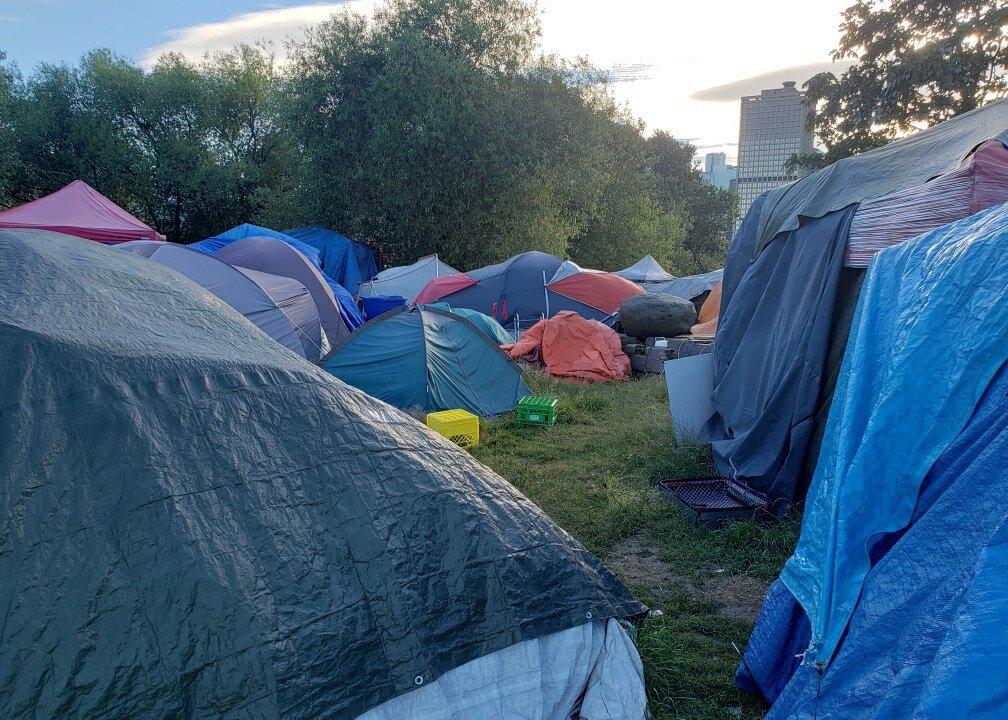VANCOUVER—Residents living near a homeless camp in Vancouver’s Downtown Eastside are speaking out as they question how much longer the camp will occupy the area. Meanwhile, advocates for the homeless point to the encampment as an example of political inaction in response to a problem that has needed attention for years, as some pundits question long-term government policy direction.
The camp of approximately 80 tents is now in Crab Park, its fourth location after being evicted from Oppenheimer Park in 2020, a nearby parking lot shortly afterward, and eventually Strathcona Park in May 2021. The current site looks more permanent, as a court ruled in January this year that the encampment can remain because the city doesn’t offer enough alternative housing or shelters to meet the needs of those living in the tents.





